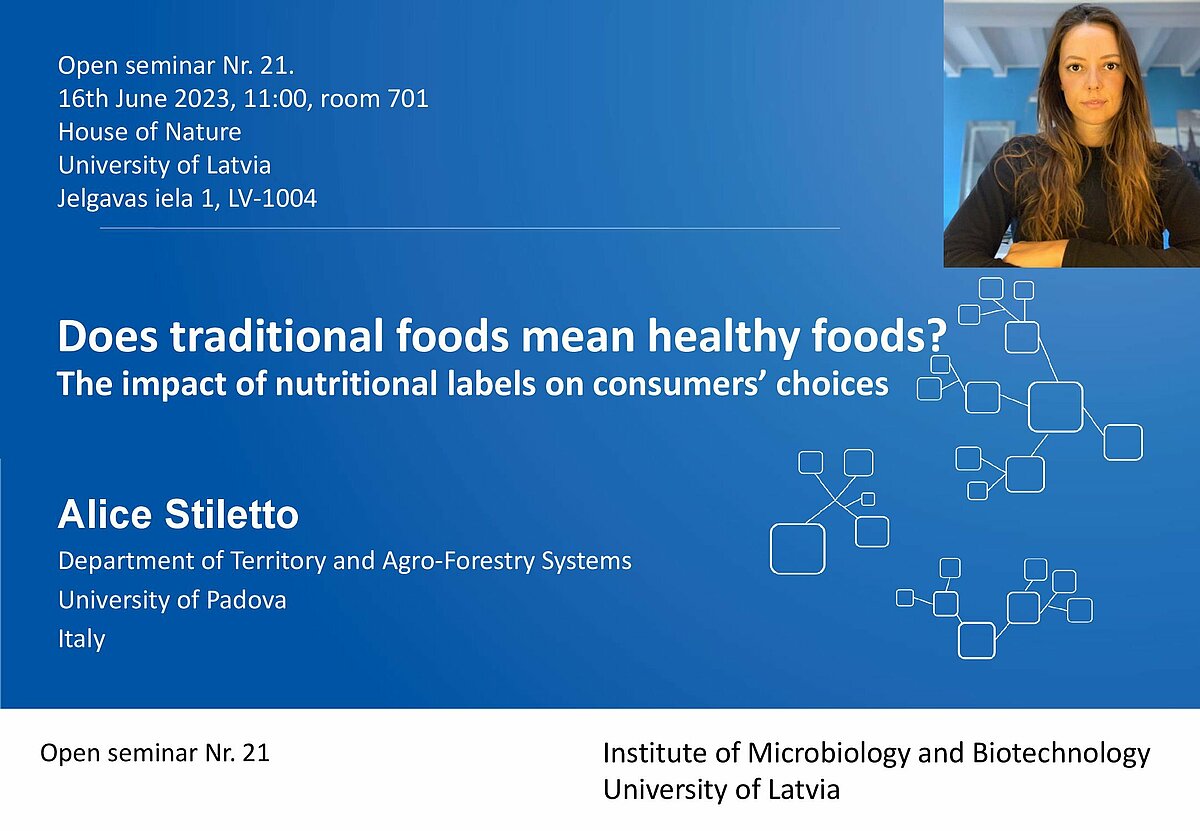
In recent years, the global rise in obesity and overweight issues has become a significant concern. According to the World Health Organization (WHO 2020), there has been a staggering 200% increase in these conditions between 1975 and 2016. In response, the European Union has implemented policies aimed at guiding consumers towards healthier food choices as part of the Farm to Fork strategy under the European Green Deal. One crucial aspect of these policies is the use of mandatory and self-explanatory Front-Of-Pack (FOP) nutrition labeling, which provides consumers with information about the nutritional value of the product.
The Nutri-Score (NS), a popular nutritional profiling system within the European Union, has gained significant support and is being voluntarily implemented in several EU countries, including Latvia. However, the NS labeling system tends to negatively classify products of animal origin, including those with Geographical Indications (GI). Geographical Indication products, such as those with Protected Designation of Origin or Protected Geographical Indication status, are highly valued by consumers and supported by the Common Agricultural Policy, despite potentially receiving low Nutri-Score ratings.
Despite the importance of this topic, very few studies have been conducted to evaluate the impact of Nutri-Score labels on quality products, particularly those with Geographical Indications. Alice Stiletto's research project has two primary objectives. Firstly, it aims to examine the implementation and perception of Nutri-Score across EU countries, highlighting differences in consumer perception and policy application. Secondly, it seeks to assess consumers' preferences and Willingness To Pay (WTP) for Nutri-Score labeled products, focusing specifically on those with Geographical Indication. The project will also analyze the policy implications of the Nutri-Score label.
Alice's methodology incorporates various approaches to address these research objectives. A systematic literature analysis is being conducted to gather insights into the general sentiment of European citizens regarding the Nutri-Score label. Additionally, a survey involving 600 Italian consumers has been conducted to measure their willingness to pay for Geographical Indication and conventional products labeled with Nutri-Score. An experimental auction has also been carried out in Italy to measure the real-life willingness to pay, reducing biases associated with hypothetical experiments. Furthermore, an economic impact analysis using market data from France, where Nutri-Score labeling is already adopted, will evaluate the effect of the label on product prices.
By presenting her research in an open seminar, Alice hopes to raise awareness of the critical issues of obesity and malnutrition in Europe and emphasize the role of nutrition labeling in addressing these concerns. She aims to engage the audience in a discussion to improve the Nutri-Score system and potentially establish collaborations involving Latvia as a case study. Alice emphasizes the importance of conducting studies on the perception and effects of this labeling system in all European countries, not just in a select few, to ensure that EU policies are based on comprehensive data collected from all member states.
Alice envisions her research contributing to a better understanding of consumer behavior and influencing industry practices. By shedding light on the current situation across Europe and identifying gaps in scientific literature, her work will guide future research in this field. Furthermore, estimating consumers' willingness to pay for Nutri-Score labeled products allows for predicting market dynamics upon policy adoption, enabling producers to make informed decisions and mitigate potential market share loss. Finally, the creation of a system dynamics model will simulate the impact of various factors, including supply, demand, and policies, on the market, providing a comprehensive understanding of potential outcomes.
We invite all interested individuals to attend an open seminar on June 16th from 11:00 to 12:00, where Alice Stiletto will present her research findings. The seminar will take place at LU Dabas mājas 701. Your presence and participation will contribute to the valuable discussion surrounding this important research topic.

 Academic Centre
Academic Centre